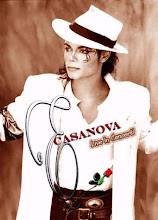Reading order
Fans of the series often have strong opinions over the correct ordering of the books. Under dispute is the placement of two volumes, The Magician's Nephew and The Horse and His Boy, which take place significantly earlier than they were written, and which also fall somewhat outside the main story arc connecting the others. The "reading order" of the other five books is not disputed.
The books were not numbered when originally published. The first American publisher, Macmillan, numbered the books in the original publication order. When Harper Collins took over the series in 1994, the books were renumbered using the internal chronological order, as suggested by Lewis's stepson, Douglas Gresham. Lewis's own input on the order was limited to keeping the Caspian triad together, so that The Silver Chair was published before The Horse and His Boy though the latter was completed first.[4]
Publication order Chronological order Written order Final Completion order[citation needed]
The Lion, the Witch and the Wardrobe The Magician's Nephew The Lion, the Witch and the Wardrobe The Lion, the Witch and the Wardrobe
Prince Caspian The Lion, the Witch and the Wardrobe Prince Caspian Prince Caspian
The Voyage of the Dawn Treader The Horse and His Boy The Voyage of the Dawn Treader The Voyage of the Dawn Treader
The Silver Chair Prince Caspian The Horse and His Boy The Horse and His Boy
The Horse and His Boy The Voyage of the Dawn Treader The Silver Chair The Silver Chair
The Magician's Nephew The Silver Chair The Magician's Nephew The Last Battle
The Last Battle The Last Battle The Last Battle The Magician's Nephew
To make the case for his suggested order, Gresham quoted Lewis' reply to a letter from an American fan in 1957 who was having an argument with his mother about the order:
I think I agree with your order [i.e. chronological] for reading the books more than with your mother's. The series was not planned beforehand as she thinks. When I wrote The Lion I did not know I was going to write any more. Then I wrote P. Caspian as a sequel and still didn't think there would be any more, and when I had done The Voyage I felt quite sure it would be the last, but I found I was wrong. So perhaps it does not matter very much in which order anyone read them. I’m not even sure that all the others were written in the same order in which they were published.[5]
In the Harper Collins adult editions of the books (2005), the publisher asserts Lewis's preference for the numbering they adopted in a notice on the copyright page:
Although The Magician's Nephew was written several years after C. S. Lewis first began The Chronicles of Narnia, he wanted it to be read as the first book in the series. Harper Collins is happy to present these books in the order which Professor Lewis preferred.
But the only such evidence to have come to light is the letter quoted above. Some readers who appreciate the original order believe that Lewis was simply being gracious to his youthful correspondent: he could have changed the books' order in his lifetime had he so desired.[6] They maintain that much of the magic of Narnia comes from the way the world is gradually presented in The Lion, the Witch and the Wardrobe. They believe that the mysterious wardrobe, as a narrative device, is a much better introduction to Narnia than The Magician's Nephew — where the word "Narnia" appears in the first paragraph as something already familiar to the reader. Moreover, they say, it is clear from the texts themselves that The Lion, the Witch and the Wardrobe was intended to be read first, and that The Magician's Nephew was not. When Aslan is first mentioned in The Lion, the Witch and the Wardrobe, for example, the narrator says that "None of the children knew who Aslan was, any more than you do". Fans of the original order point out that this is nonsensical if one has already read The Magician's Nephew.[7] Other similar textual examples are also cited. This argument hinges partly on the difference between Chronology and Narrative.[8]
Tuesday, February 3, 2009
Subscribe to:
Post Comments (Atom)

No comments:
Post a Comment